
Second to speculative philosophy, literary criticism is perhaps one of the most conflict ridden discipline of all theory. The conflicting claims are often paradoxical but the role of critic itself being a contentious thread of controversy is perhaps the most interesting paradox. After lot of circuitous rounds, the debate always boils down to a more general question regarding the ultimate purpose of criticism.
An obvious aspect that usually comes to the fore is that this function is necessarily impersonal. Not that any critic can claim to have absolute objectivity, impersonal nature of criticism simply means that a critic must portray herself as a restrained bystander, always illuminating general and particular aspect of the text, and the underlying diverse relationships whose subtlety might not be as obvious to the reader; the reader, on the other hand, is the agent who is always approaching the text with her necessary biases.
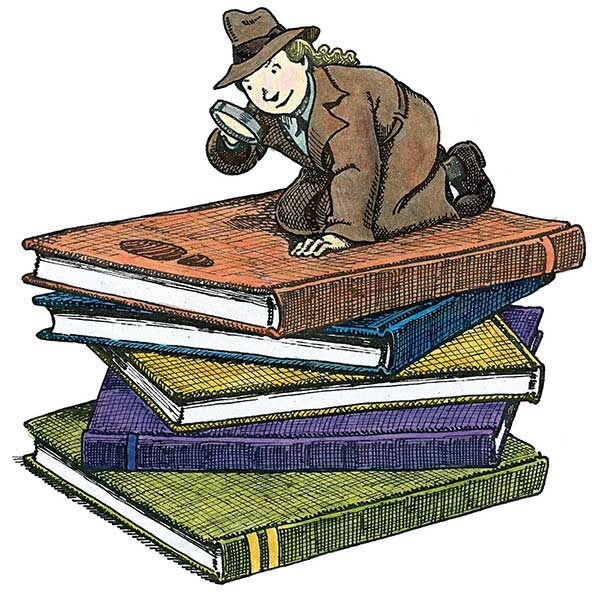
However, like most other isms, criticism too usually fails to stand up tall to its own expectations of a supreme objective portrayal. Reasons are multifarious but the most interesting ones are psychological.
The knowledge that critical enterprise is essentially subservient to the creative enterprise is dreadful for a critic, to say the least. “They are like cuckolded husbands,” the ingenious Serbian novelist Milorad Pavic introduces essayists and critics while addressing reader of his unique novel, “always the last to find out.”[1] This is indeed true by none other than critics’ own modern standards where death of the author has not only reduced the triadic relationship of author, text and reader to a dyad but also raised questions on the dyad itself by grabbing meaning from the reduced reader-text relationship and deferring it inevitably and infinitely.
Also read: Ahmad Bashir (1923-2004): Dancer With Wolves
But this is not an essay about semiotic complexities, a subject we can easily defer indefinitely to scholars and experts. This is about a more urgent business: of social media chambers occupied by capsule critics.
A capsule review is one where the reader, at some point of her reading curve, decides to replace hats and assume the role of critic. Needless to say that the capsule reviews shape quick opinions of uninitiated readers as no one is able to keep up with everything coming out in today’s fast publishing world. The usual traversable forms are star ratings or short opinion pieces; the more riotous engagements where tunneled reader-critics indulge in vociferous mudslinging and outright mockery of texts and authors.
The capsule critic thus becomes the goddess of her own little quasi-moral reading universe; her divinity represented in the emphatic, usually moral or sociopolitical godly judgment; at times served as a warning note to the followers from a higher pedestal, at times issued as an imperative moral statement.
The power is manifested in cataclysmic proportions, where faithful of a critic-demigod resort to various fatwas against authors, calls for book banning and at times lynching.
Also read: LLF In New York Was Virtually Lahore In A Capsule, Sans The City’s Soul, Punjabi
Quite predictably, as in most moral judgments, the proof of the pudding doesn’t lie in eating but in the warning tag. Texts are no more presented to be experienced by diverse audience but to be mechanically compartmentalised according to binary decision rules.
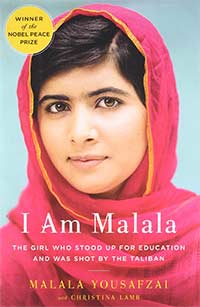 Salman Rushdie becomes profane regardless of the variety of his literary oeuvre, Nabokov becomes a pedophile, Manto and Lawrence are generally tagged as obscene and vulgar, Vonnegut and Gordimer are pretty much established as anti-state; the trend also extends to nonfiction, for instance, Fazlur Rahman’s seminal book on Islamic tradition being declared blasphemous in 60s. In recent times, vituperative capsule critics like Orya Maqbool Jan have proved immensely successful in shaping large public opinions of Malala’s book.
Salman Rushdie becomes profane regardless of the variety of his literary oeuvre, Nabokov becomes a pedophile, Manto and Lawrence are generally tagged as obscene and vulgar, Vonnegut and Gordimer are pretty much established as anti-state; the trend also extends to nonfiction, for instance, Fazlur Rahman’s seminal book on Islamic tradition being declared blasphemous in 60s. In recent times, vituperative capsule critics like Orya Maqbool Jan have proved immensely successful in shaping large public opinions of Malala’s book.Except the occasional life-threatening poisonous proportions of the far right, it is difficult to differentiate the nature of respective divinities on both sides of socio-political spectrum.
One recent left-leaning example is the twitter tirade of short critical outbursts lumping complete literary oeuvre of Qudrutullah Shahab, Ashfaq Ahmed, Bano Qudsia and Mumtaz Mufti in one basket and emphatically tagging it as rationally regressive, politically placated in favor of authoritarianism and socially dogmatic.
https://twitter.com/ShahAmara_/status/1132905772457844737
These capsule critiques, even if one ignores the platitudes and rampant ad hominem, are very difficult to access as constructively literary. At the most, they sound like stubborn angry children wanting a group of writers to come up to their hazy desires.
Employing vague categories to verbalize obscure points of view, these critics hardly seem to have a clue what they should actually contend in order to present a meaningful critique intended to ultimately evolve into a dialogue with texts and their readers.
The issue here is not the medium. It is, in fact, the lack of awareness regarding the critical tradition which puts these pop critiques outside the folds of useful literary engagement. Otherwise, the devices of satire, mockery and scathing rebuttal are not foreign to serious literary criticism.
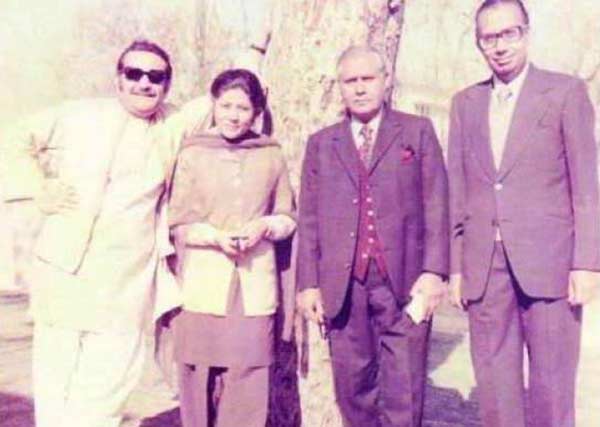
Ashfaq Ahmad, Bano Qudsia, Qudratullah Shahab and Ibne Insha
In this case too, there is a lot to criticise in the whole body of work of these four horsemen of romanticist mysticism; however, each work demands a separate engagement and we are hardly dealing with a monolith here. If done right, even ten to fifteen minutes of a blog can supply enough breadth to an uninitiated interested reader.
Their incredible metaphysical adventures and fiction packaged as a fact can provide a chapter length material for a book written on the topic of how not to do magical realism.
It has been related, for instance, that parts of Shahabnama were originally narrated by the author in private gatherings as his new novel. The young protagonist roaming about the streets of Alipur and growing up to be an old man in the magical lands of Alakh Nagri may indeed be a walking paradox or a literary opportunist furnishing apologies for state-sanctioned narratives, but the fact cannot warrant a claim of complete exhaustion of Mufti’s literary uses.[2]
Sending these works to oblivion — the proverbial dustbin of history — may indeed be a valid goal of a disagreeing hateful critic. Hate is a weird sentiment in relation to texts but every once in a while in our complex reading lives, it isn’t so rare to end up disliking a text strongly.
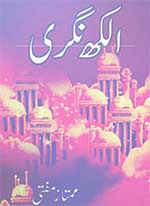
Intizar Hussain, when asked about whether he has read Umera Ahmed in one of his last interviews, replied that he doesn’t want to increase her readership any further.
Silence and unconcern are indeed two strong critical weapons when used intelligently so as to impart enough sense of their usage to the community of readers. However, looking down upon readers’ sensibilities and shaming them explicitly for their psychological leanings is not criticism or opinion. It is what it is: shaming and bullying.
To the degree it is possible to psychoanalyse capsule critics from their short audiovisual outbursts, there seems to be an impulsive inclination to merge writers with the allegedly detestable worldviews presented in their literature. This indeed is an interesting critical challenge on its own since writers, after all, can be seen just as close to their literary worlds as a painter can morph into his own canvas.
Also read: Comrade Ghalib: A Great Progressive Poet
The question inevitably boils down to how life and art conjoin in the overall weltanschauung of various societies!
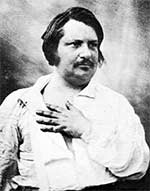
Honoré de Balza
While trying to distinctly characterise Russian attitudes to life and art as opposed to French ones, Isaiah Berlin once enquired[3] whether it would upset the French people if someone proves that Honoré de Balzac was serving as a spy for French government or Stendhal indulged in illegal operations at stock exchange?
According to Berlin’s characterisation, there are at least two diametrically opposite attitudes to life and art, that is, 1) to primarily understand writers as individuals responsible for all their fictitious, public or private utterances, or 2) to understand them instead as ‘purveyors’ with a foremost duty to provide as good an object as possible.
In this backdrop, isn’t it too obvious even to a cursory reader that all these popular writers ultimately explored opportunities to provide the best possible product in most captivating ways, according to their respective degrees of creativity?
Therefore, for instance, Mumtaz Mufti’s passionate adventures sometimes on the boundaries of eroticism to his later platonic romanticism with higher-truths, Qudrutullah Shahab’s hyperbolic sketches relating relationships with politicians, dictators and his alleged supernatural mentors, or Ashfaq Ahmed’s conversations on radio or TV are merely products of some really good purveyors. All of them were creative craftsmen who experimented with various literary art-forms, exploited opportunities and arouse readership interest like any other popular writer.
How critically reasonable is it to shame the reader who is unable to enjoy Umberto Eco’s Foucault’s Pendulum but readily believe in every fictional conspiracy theory of Dan Brown? How many young readers would fall instantly in love with Chesterton’s Father Brown instead of Marvel’s comic heroes? How many would prefer Tolkien’s classical imaginary world over George Martin’s epic frenzy packaged with cheesy elements of modern popular taste?
Why must we judge artists rather than the pieces of art, especially when the former judgment is not likely to transform into an objective discourse, since the artist is rarely there to rejoin? Even if he is there to participate, is it critically essential, rather fruitful, that an artist must be projected as a public property to testify for his self-deceptions, allegedly wicked twists and turns or ascribed versions of truths? Are all the artists, and other individuals in general, fully aware of all the historical forces of their times, or are they primarily on the mercy of the flow?
Would it be a fair critique, for instance, if Ghalib is reduced to an opportunist toady of British Raj for composing panegyrics eulogising Queen Victoria? Even as an interesting fictional experiment, how might he respond to postcolonial sensibility of a capsule critic?
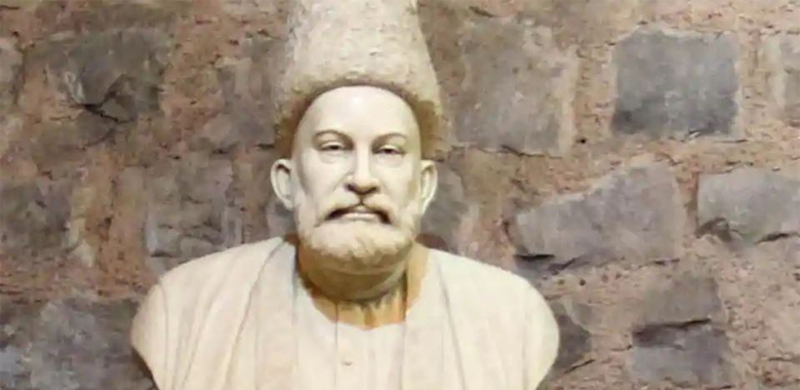
Must we ridicule diverse sensibilities, desecrate cherished ideals and respective world-views of individual readers rather than intricacies of the text and how it shapes those worldviews? Criticism must not inadvertently portray itself as making implied cases for burning books and effigies.
Also read: ‘There is always politics in literature’: Dr Khalid Ashraf talks about sub-continent writers
Criticism, instead, is about empathetic, dispassionate understanding and objective disentanglement of various layers of art and how each of these layers interact with life to supply essential humanistic truths. There is even more to it in other more subtle dimensions related to collective conscience of various imagined communities. And as it is meaningful — with usual allowances for exceptions — to talk about Russian, French, German or Chinese attitudes to life and art, is it also meaningful to speak about a Pakistani conscience in a more or less same fashion?
Coming back to Russian attitudes, our capsule critics may benefit immensely from Belinsky’s celebrated letter to Gogol criticising publication of a treatise in which the latter called back Russian people to ancient patriarchal ways and find spiritual awakening in serfdom. Belinsky’s letter, besides being a literary masterpiece, is a marvel of social critique challenging the truth supplied by Gogol’s literary tract. While describing the nomenclature of Russian individual, Belinsky writes:
"Take a closer look and you will see that it is by nature a profoundly atheistic people. It still retains a good deal of superstition, but not a trace of religiousness. Superstition passes with the advances of civilisation, but religiousness often keeps company with them too; we have a living example of this in France, where even today there are many sincere Catholics among enlightened and educated men, and where many people who have rejected Christianity still cling stubbornly to some sort of god. The Russian people is different; mystic exaltation is not in its nature; it has too much common sense, a too lucid and positive mind, and therein, perhaps, lies the vastness of its historic destinies in the future. Religiousness has not even taken root among the clergy in it, since a few isolated and exceptional personalities distinguished for such cold ascetic contemplation prove nothing. But the majority of our clergy has always been distinguished for their fat bellies, scholastic pedantry, and savage ignorance. It is a shame to accuse it of religious intolerance and fanaticism; instead it could be praised for exemplary indifference in matters of faith. Religiosity among us appeared only in the schismatic sects who formed such a contrast in spirit to the mass of the people and who were numerically so insignificant in comparison with it".[4]
The purpose, of course, is not to extend social commentary on our particular attitudes to life, art, religion and truth, and whether there are any possible comparisons or contrasts with the 19th century Russians, but just to showcase the essential literary traits of incisive, albeit objective criticism. Let it be a dummy’s guide for capsule critics who are supposedly content in throwing away terms like ‘rational attitudes‘ and ‘progressive thinking‘ without trying to describe an iota of what these categories actually entail and how they can shape up an alternative world-view in contrast to an allegedly misplaced religious and spiritual outlook. A critique cannot insist to speak from an alternative, even if equally romantic point of view where an artist is ultimately judged in terms of degree of conformance to a superficial integrity and a kind of commitment to some vague moral ideals which only exist in the mind of a particular critic with an ambiguous bent.
Unfortunately in the end, when we cannot even begin to portray a prototype Pakistani individual in any social or philosophical sense at this point of our brief social history of art, so called progressive products of critique can neither be understood as objective social commentary nor an erudite literary critique.
Also read: Pakistani Novelist Shazaf Fatima Haider Bags Award At Indian Literature Festival
The angry diatribes always following capsule critiques on both sides of the spectrum — the so-called liberal progressive and conservative orthodox — suggest that if Pakistani conservatives ascribe to a religiously romantic and narcissist world-view, the malady of Pakistani liberalism lies in lazy and simplistic habits of thought. If we want to ascribe to an ideal of compassion and progress, we have to create community spaces which allow diversity to flourish.
Rather than absurd claptrap, there have to be dispassionate critiques based on accurate archetypal characterisation from contrasting standpoints. The most creative critic would be the one who can always resort to passionate devices of satire and parody, rather than shaming.
Lastly, if some progressive voices only approve literature charting worldviews based on extreme scientific materialism, ridiculing metaphysical sensibilities of a particular readership through twaddle is certainly not the best course to invite them to realism. Like that remarkable decade in Russia from 1838 to 1848, we desperately need the rebirth of an indigenous and diverse intelligentsia, which can invent new and fresh forms of objective criticism and evolve productive discourses.
[1] Pavic, Milorad. Dictionary of the Khazars: A Lexicon Novel in 100,000 words. Vintage, 1989.
[2] For an encompassing critique on Mumtaz Mufti’s Alakh Nagri see Kamal, Ajmal. “Dunyadari Ki Ma’ba’ul-Tibiyyat” in Achi Urdu Bhi Kya Buri Shey Hey. City Press, 2012
[3] Berlin, Isaiah, “The Birth of the Russian Intelligentsia” in Russian thinkers. Penguin UK, 2013.
[4] Vissarion G. Belinsky, “Letter to Nikolai V. Gogol” in Selected Philosophical Works. Moscow, 1948. It is the same letter, reading which in a circle of Petrashevsky adherents, Dostoyevsky was condemned to death, a punishment which was later commuted to penal servitude.
